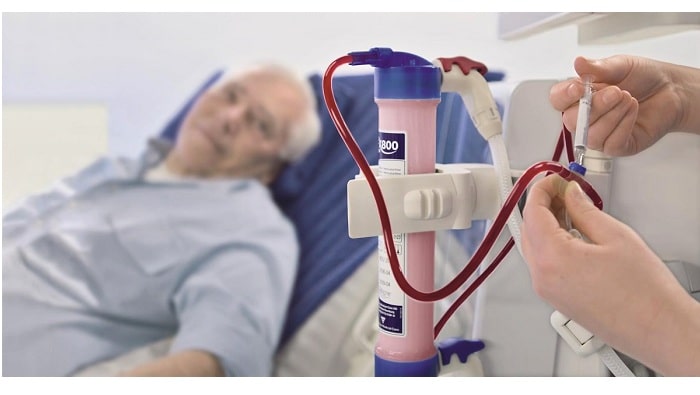Fresenius Medical Care, the world’s largest provider of dialysis products and services, announced the results from the first performance year from its End Stage Renal Disease Seamless Care Organizations (ESCOs). The results, which cover the period from October 2015 through December 2016, show improved health outcomes for patients receiving care coordination through the ESCOs. This success was validated by an independent report from Lewin Group, which showed a nearly nine percent decrease in hospitalization rates for these patients during the same time. As a result, Fresenius Medical Care ESCOs together generated more than $43 million in gross savings, an average 5.47% reduction in expenditures per patient, with all six of its first-year ESCOs exceeding the shared savings benchmark.
Fresenius Medical Care’s ESCO programs were established through an agreement with the Centers for Medicare & Medicaid Services (CMS) as part of CMS’ Comprehensive End Stage Renal Disease (ESRD) Care (CEC) Demonstration Program. Launched in 2015, it is the first disease-specific shared savings program in the United States. This program was designed to identify, test and evaluate new ways to improve care and healthcare cost for Americans with ESRD.
The first-year report includes results of Fresenius Medical Care’s first six ESCOs, including 176 clinics and 386 physician partners in Philadelphia, Pa.; Charlotte, N.C.; Dallas, Texas; San Diego, Calif.; Columbia, S.C. and Chicago, Ill. In January 2017, Fresenius Medical Care added 18 new ESCOs for a total of 24, expanding to nearly 800 physician partners and giving the company the largest ESCO presence of any dialysis provider in the United States.
“Participation in the ESCO program reinforces our support of physicians and the healthcare system to improve care and reduce costs,” said Rice Powell, Chairman and CEO of Fresenius Medical Care. “We are excited about our results and pleased that CMS has provided us with the opportunity to expand our services to cover even more patients.”
CMS conducted an application process to select the participants in the ESCO program. ESCO patients, or beneficiaries, are aligned to ESCOs through a claims-based process, and maintain their full Medicare benefits as well as the freedom to choose their providers. The program uses a shared savings and losses model as a financial incentive to improve care, assessed by a baseline that looks at expenditures incurred for beneficiaries in each of the three years prior to the start of the program. In the first program year, there were 16,085 beneficiaries aligned to the thirteen participating ESCOs.
Fresenius Medical Care is the world’s largest provider of products and services for individuals with renal diseases of which around 3 million patients worldwide regularly undergo dialysis treatment. Through its network of 3,714 dialysis clinics, Fresenius Medical Care provides dialysis treatments for 317,792 patients around the globe. Fresenius Medical Care is also the leading provider of dialysis products such as dialysis machines or dialyzers. Along with the core business, the company focuses on expanding the range of related medical services in the field of Care Coordination. Fresenius Medical Care is listed on the Frankfurt Stock Exchange (FME) and on the New York Stock Exchange (FMS).
For more information visit the company’s website at www.freseniusmedicalcare.com



















